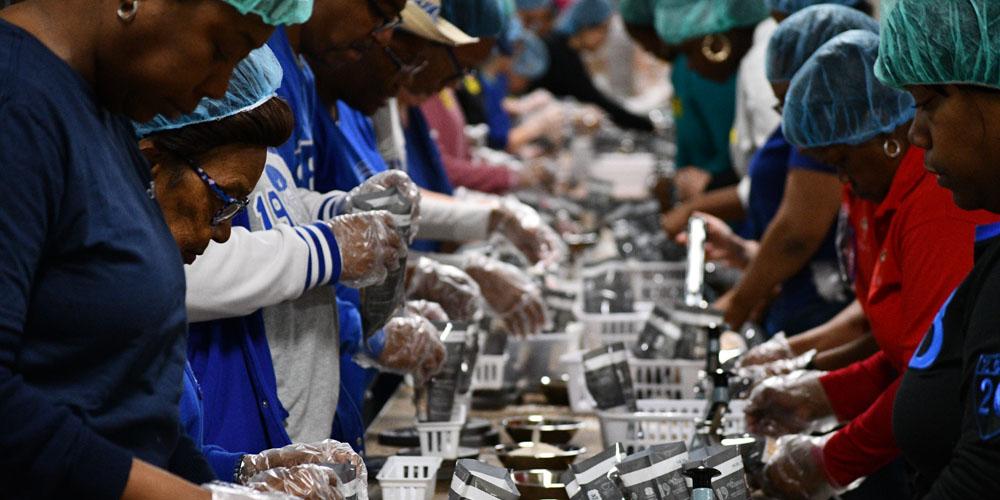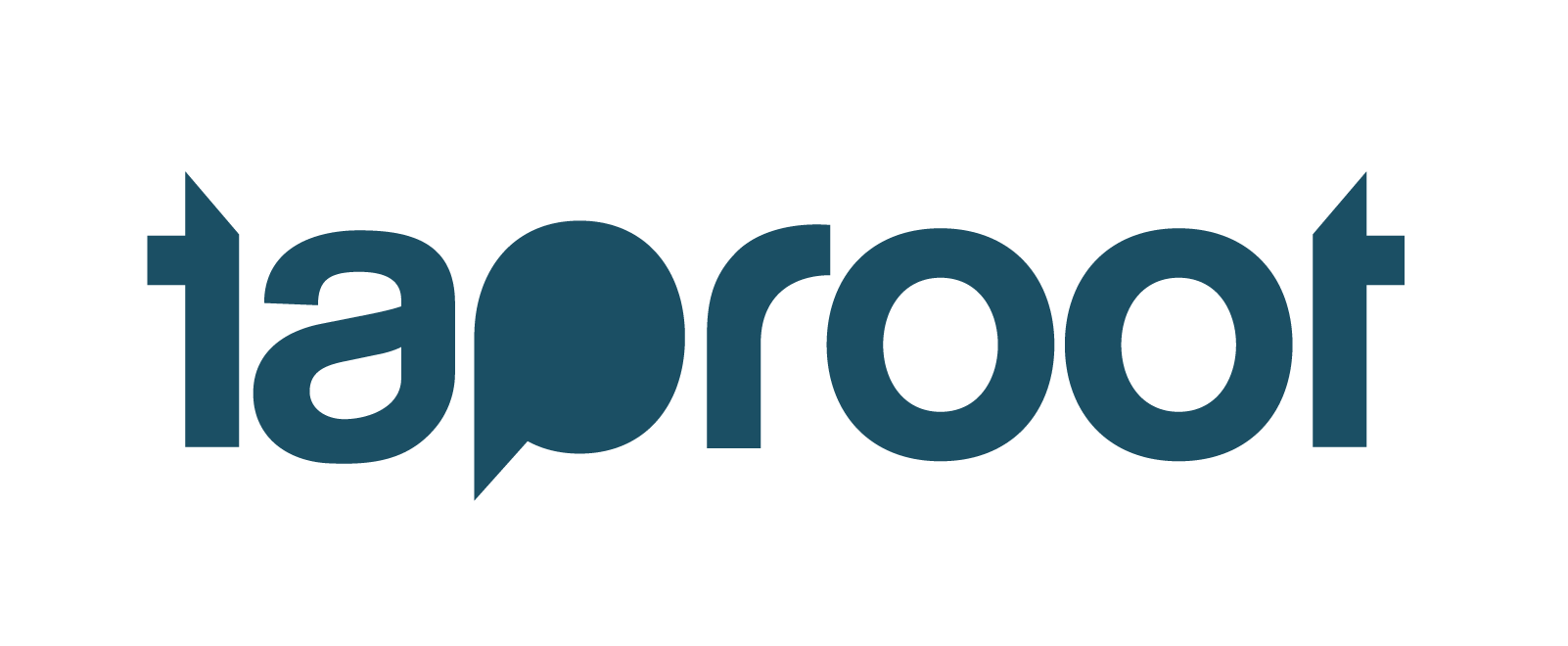Blue Cross and Blue Shield of Louisiana: Helping Everyday People Do Extraordinary Good
“Helping everyday people do extraordinary good” is how Blue Cross defines their Community Partnerships work, and they strive to live up to that goal.

Taproot Foundation is highlighting the partnerships we need to Rebuild Our Communities—Together during Pro Bono Week 2020.
For Blue Cross and Blue Shield of Louisiana, community comes first. But that community goes beyond their headquarters of Baton Rouge, beyond their nine regional offices across Louisiana, and even beyond their own policyholders. Since 1934, when area hospitals joined forces to form a nonprofit mutual insurer in the midst of the Great Depression, Blue Cross has been committed to the health and lives of all Louisianians, and to their public service mission. They’ve served Louisiana for more than 85 years—and now they’re using pro bono to find new ways to give back to the state they love.
Helping neighbors help neighbors“Helping everyday people do extraordinary good” is how Blue Cross defines their Community Partnerships work, and they strive to live up to that goal. In 2019, Blue Cross funded the work of 300+ community nonprofits that reached 2.7 million Louisianians. The company’s employees also volunteered more than 35,000 hours.
Michael Tipton is head of Blue Cross’ Community Relations department, as well as president of the Blue Cross and Blue Shield of Louisiana Foundation. He noted that employees are always eager to give back to the community through Team Blue, their hands-on volunteer force. “But we kept hearing from employees: ‘I want to do more, what else can I do?’” Tipton said. “We have an actuarial staff that know all about finance, we have an entire team for translation services, we have an incredible marketing team… all things our nonprofit partners needed and could benefit from. We realized that we could engage more colleagues and meet the needs we saw in grant applications.”
This realization led Blue Cross to pro bono. They’re now in their fifth year of matching their employees with nonprofit partners on high-impact skilled volunteering projects. In 2019, this meant supporting nine projects with more than 1,300 hours of service and providing a value of $205,000 to their nonprofit partners. But the success of their pro bono program meant that Blue Cross found themselves faced with more applications than they could process. “We were limiting our nonprofit partners and that felt wrong,” Tipton said. “We realized we needed a platform where nonprofits could easily find the support they need.”
Their work to build a virtual volunteer platform started more than a year ago. Originally, Blue Cross planned to pitch the platform to other businesses as potential partners. But in the face of the COVID-19 pandemic, everything changed. “We were taking a slow and thoughtful approach,” Tipton said. “But COVID made us realize that the time is now.” So, this summer, Blue Cross partnered with Taproot Foundation to launch the state’s first dedicated platform for virtual pro bono volunteering through Taproot Plus. The platform is free to use—and it’s open to nonprofits and volunteers from across Louisiana, not just Blue Cross and their partners.
For Tipton, this open-door approach to their pro bono platform aligns with Blue Cross’ community-based philanthropic philosophy: “Much of the most meaningful work happens on the front lines—neighbor supporting neighbor. So we facilitate, we convene, we connect, and we help friends and colleagues address the needs they see down the road and across town.”
From spare change to spare timeRobin Mayhall, Senior Communication Strategist at Blue Cross, knows what it means to support her neighbors. “Working here gives us so much opportunity to do good,” she said. “I believe in sharing my spare time, spare change, and the talents I’ve been lucky enough to acquire. So I signed on as soon as we got our pro bono corps off the ground.”
In her second year as a pro bono volunteer, Mayhall volunteered for the Food Bank of Northwest Louisiana. Her team drafted a new communications plan for their nonprofit partner—and they then went above and beyond their initial project scope, putting together a social ambassador plan that included new messaging and web copy. “Everyone there is just so devoted to their work,” Mayhall reported. “I would have loved to keep working with them for another year!”
Now, shifting to virtual pro bono opportunities has enabled Mayhall to keep giving back. “I think I was the first person to sign up when Blue Cross told us about the Taproot Plus platform,” Mayhall laughed. “I was so excited, because I can filter the projects by cause, need, and even duration. I wouldn’t have been able to take on a six-month project, but I’m now working with a wonderful organization and I’m thrilled with this project and the flexibility.”
“I would encourage others to sign up, especially my coworkers at Blue Cross,” Mayhall concluded. “It’s so easy to use your specific talents to support an organization or cause that you love. What could be better than that?”
Pivoting into the futureFor Mayhall—and for Blue Cross—everything comes back to the nonprofits working to serve and improve communities across Louisiana. One of those organizations, Good Work Network, previously tackled a pro bono project with a team of HR experts from Blue Cross; now, in this tumultuous moment, they’re thinking about what comes next.
Since 2001, Good Work Network has served women and minority entrepreneurs of greater New Orleans, pushing towards their vision of an inclusive and equitable economy for all. In the last two years, they’ve turned their focus to the sustainability and expansion of the businesses they work with, and they offer a variety of programs and resources to help entrepreneurs even as they move beyond the start-up stage. They’ve helped over 2,200 businesses create or sustain more than 5,600 jobs, and they’ve helped their clients obtain over $70 million in contracts. Perhaps most crucially, their work also allows the businesses they support to give back to their own communities—from the landscaping company that always takes a chance on applicants struggling to find work to the construction company who included an incubation space for Latino entrepreneurs in their own headquarters. Good Work Network is committed to community impact on all levels.
“After Hurricane Katrina, there was a huge amount of local investment in entrepreneurship,” Hermione Malone, Good Work Network’s Executive Director, shared. “But there weren’t as many resources for existing businesses rather than start-ups.” As Good Work Network considered how they could best support their clients and began to think about turning their focus to sustainability, their internal infrastructure and external programming shifted too. They became aware of the Blue Cross pro bono opportunity and were selected for HR assistance with their performance management system. The volunteer team helped rethink the competencies they wanted to see in their team, how they handled evaluations, and more. “That project was so impactful—not just the expertise, but the enthusiasm,” Malone said. “They leveraged teammates who weren’t even part of the program! Our team designed a system that truly worked for us.”
When she thinks about the future of pro bono at this moment, Malone thinks about everything that can be accomplished in a virtual space. “We actually started laying the groundwork for our new normal a year ago—we began offering virtual coaching when it was still a hard sell,” Malone noted. This meant that when the pandemic hit, Good Work Network was already prepared: they had a platform to support entrepreneurs ready to go. The opportunities raised by virtual programming, and virtual pro bono in particular, also align with Good Work Network’s needs right now: “Our goal is ultimately to expand the reach of who we’re serving: the further afield you go, the fewer resources there are. So as we think about connecting with those people we can’t reach physically, virtual solutions make a lot of sense. There’s a lot of opportunities to draw on pro bono expertise right now.”
“We’re here to help people along as they shift, adjust, stabilize, and grow,” Malone said. That means that Good Work Network needs to shift and grow alongside their clients: every single one comes to them with unique needs, at a different stage in the lifecycle of their business. Right now, they’re working to provide funding support along with their expertise, meeting increasing need from small businesses. Malone notes that there are also many opportunities to engage in their work to support inclusive economies that work for all, including a mentoring initiative launching this fall that will welcome volunteers with subject matter expertise. Good Work Network isn’t just benefitting from pro bono—they’re enabling it for small businesses, too, offering new ways for neighbors to help neighbors.
Rebuilding in real timeIn the midst of a pandemic and in the aftermath of a devastating hurricane season, meeting the needs of their state feels more important than ever to BSBCLA. Financial and physical infrastructure has been upended across the state, particularly in southwestern Louisiana, and there are both serious short-term and long-term needs. Although much of that work will be tackled in person—likely including many of the hands-on volunteers of Team Blue—there will be other needs that can be met from anywhere. “We’re hearing from folks all over the country who grew up in Louisiana and want to give back,” Tipton shared. “Being able to volunteer your skills virtually is a powerful example of how Louisianians across the state and the country can support their home communities. We’re literally seeing rebuilding in real time.”
Ben Mahoney, Communications and Special Projects Manager at the Blue Cross Foundation, observes that this moment also comes with an opportunity to rebuild how we think about philanthropy. “Funders have often set ourselves up to run on grant cycles. But now we’re able to meet those needs on demand: there’s 70,000 volunteers waiting to help you now, on your terms and on your timeframe—shifting the resources into your control.” Blue Cross has adjusted their monetary giving in this time of need, too, ensuring they can review disaster relief applications daily rather than on a traditional cycle. For Blue Cross, rebuilding communities begins by breaking down the power dynamic in philanthropy.
Blue Cross is hopeful about the work to be done, despite all the challenges facing their state and their partners. Tipton believes that right now, pro bono can be more valuable than ever. “Now that we’ve reached the end of the summer, our nonprofit partners are looking around and taking stock of both preexisting projects and new ones. We’re seeing projects and conversations evolve. There’s urgency around the need for solutions right now, but there’s also excitement.”
Blue Cross believes that everyday people truly can do extraordinary good—even in extraordinary circumstances—when neighbors band together to build, rebuild, and recommit to their communities.

